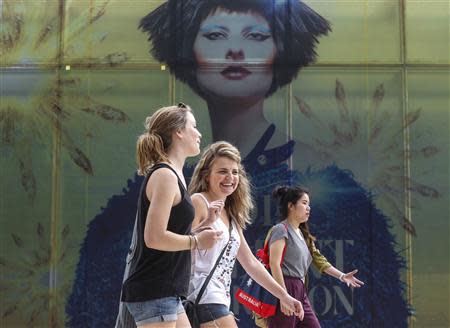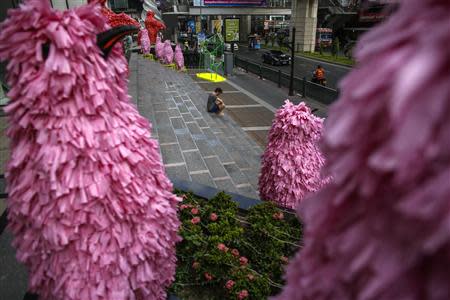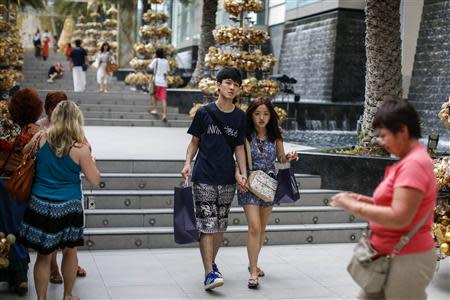Thai protests cut tourist numbers, might spoil high season
By Amy Sawitta Lefevre BANGKOK (Reuters) - Boonyot Chaiyakhan has been a security guard at the Siri Sathorn hotel in the Thai capital, Bangkok, for three years. This month, he says, has been one of the quietest since he started. "It's because of the protests. Normally the hotel would be buzzing but the Japanese tourists are staying away," he said. Anti-government protests are into their second month and, even if the number of demonstrators has gone down, the crisis is far from over. It is still certain to be a record year for tourism in 2013 after a jump in the number of Chinese visitors, but the December-February high season may prove a disappointment. Famed for its gilded temples and powder-white beaches, Thailand attracted a record 22 million visitors in 2012 and has proved resilient in the past to political turmoil. But at least 39 countries have issued travel warnings and the tourist authority says prolonged protests would push arrivals down 1.3 percent from an expected 26.1 million in 2013 to 25.8 million. "We're expecting minimal impact on revenue from tourism this year but are monitoring in case the situation becomes similar to anti-government protests in 2010," said Ranit Tokrisna, a spokeswoman for the ever-optimistic Tourism Authority of Thailand. More than 90 people were killed in protests in Bangkok in April and May 2010. Thailand's airport operator said on Monday passenger numbers had fallen 2 percent over the past couple of months compared with 2012. "I took a business trip in mid-November before the protests heated up and immigration lines stretched as far as the eye could see," said Grissarin Chungsiriwat, an editor at a publishing company. "On my way back from a second trip at the start of December, the immigration hall was empty." CANCELLATIONS The rallies have been largely peaceful but in one episode at the end of November five people were killed in clashes between pro- and anti-government groups in eastern Bangkok. Protesters seeking to overthrow the government of Prime Minister Yingluck Shinawatra have vowed to fight on even though she has called an election for February 2. They want an overhaul of the electoral system and other reforms that would take months. The protesters have their main base in the city's historic quarter, not far from the Grand Palace and the Temple of the Emerald Buddha. The Thai Hotels Association, which represents about 800 hotels, said 27 hotels surveyed in Bangkok had reported a total of about 25,000 rooms canceled for December. Supawan Tanomkietipume, chairwoman of its marketing department, said hotels in Bangkok were seeing a 15 percent drop in occupancy compared with the same period last year. Analysts say Thailand's tourist-friendly image could suffer in the long term, hurting a sector that accounts for 8-10 percent of gross domestic product (GDP). "Tourism is showing gradual signs of weakness and past estimates indicate that a 1 percent drop in tourism corresponds to 0.1 percent of GDP," said Christian Lewis, a Southeast Asia specialist at political risk consultants Eurasia Group. Not everyone is complaining. At a protest site by Democracy Monument, Naputt Sayasit, a 32-year-old motorcycle taxi driver, has been busy taking protesters, journalists and the occasional backpacker around on his metallic pink Honda motorbike. "I pick up tourists who get dropped off near the protest site by taxis that can't pass through and take them to their hostel in Khao San. I can charge whatever I want," he said, referring to the Khao San Road backpacking center. "Business is good," he said, grinning from ear to ear. (Additional reporting by Panarat Thepgumpanat; Editing by Alan Raybould and Robert Birsel)



